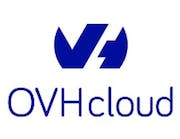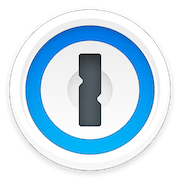Looking for the best Cloud Security Software? Check out our comprehensive buyers guide to find the right solution for your business. Get expert insights and make an informed decision today.
As the world becomes increasingly dependent on cloud technologies, there has been a surge in cyberattacks targeting cloud infrastructure and data. This has led to a growing demand for reliable cloud security software that can protect against security risks and ensure the safe storage and management of sensitive information. However, with so many options available in the market, it can be overwhelming for businesses to choose the right cloud security software that meets their specific needs.
This Cloud Security Software Buyer's Guide will provide an in-depth analysis of the best cloud security solutions available, outlining their features, benefits, and unique selling points to help businesses make the best possible decision.
What is cloud security software?
Cloud security software is a vital tool to keep organizations secure. It consists of a collection of procedures and technologies designed to address external and internal threats to business security. The software aims to protect data, applications and workloads running on the cloud from unauthorized access, cyberattacks, data breaches and other potential threats.
Common use cases of cloud security software include:
- Protecting data and applications from malicious insiders, hackers and malware
- Enforcing compliance with regulations and standards
- Providing secure access to users and devices
- Monitoring and detecting suspicious activities in real-time
- Managing access to shared resources
Many types of companies can benefit from using Cloud Security Software. However, companies that store sensitive data such as healthcare providers, financial institutions, and government agencies have a higher need to secure the cloud. Small and medium-sized businesses can also benefit from using this software as they often lack the resources to implement and manage an in-house security solution.
In conclusion, cloud security technology is essential for every organization that stores data and applications in the cloud. It provides protection against cyber threats, ensures compliance with regulations, and enables secure access to resources. The technology is versatile and can be customized to fit the security needs of the organization. From small businesses to large enterprises, all companies can take advantage of security solutions to ensure secure and uninterrupted operations.
What are the benefits of cloud security software?
In today's digital world, businesses rely heavily on cloud computing services to manage their day-to-day operations effectively. However, with the increasing complexities and rapid expansion of cloud infrastructures, keeping data secure becomes a major concern for organizations of all sizes. That's where cloud security platforms come in.
Implementing robust cloud security software not only helps businesses protect their sensitive data from potential attacks and unauthorized access but also ensures that their cloud infrastructure is compliant with industry regulations. Here are some key benefits of cloud security technology:
Improved data protection
Cloud security solutions provide an additional layer of security to your cloud infrastructure, protecting your sensitive data from potential threats such as hackers, malware, and viruses. This ensures that your data remains confidential, safe, and available only to authorized users.
Increased compliance
Cloud security provides features and tools to ensure that your cloud infrastructure complies with industry standards and regulations, such as HIPAA, GDPR, and PCI DSS. Compliance with such regulations ensures that your business won't face any legal or financial penalties due to data breaches.
Better visibility
Cloud security software provides real-time monitoring of your cloud infrastructure, giving you better visibility into any potential security threats. This allows you to take immediate action and prevent any data breaches or security incidents.
Cost-effective
Implementing cloud security software is much more cost-effective than maintaining an in-house security team. This is because cloud security software requires minimal hardware investment, and the vendor takes care of most of the maintenance and upgrades.
Scalability
Cloud systems scale with your business needs, which means that it will grow as your business grows. This allows you to focus on your core business operations while the software takes care of your security needs.
In conclusion, cloud security technology is an essential tool for businesses to protect their sensitive data, comply with industry regulations, and prevent potential security threats. By implementing cloud security software, businesses can enjoy the benefits of improved data protection, increased compliance, better visibility, cost-effectiveness, and scalability.
What are the most important features of cloud security technology?
Security solutions are an essential part of any modern business's cyber defense strategy. As the trend towards cloud-based infrastructure continues to grow, it's important for businesses of all sizes to invest in the right tools to protect their data and applications from threats. In this section, we'll explore 10 commonly found features of cloud security platforms.
- Identity and access management (IAM): Protecting data starts with access control. With IAM, you can define who has access to what data and applications, and set granular access permissions that enforce the principle of least privilege.
- Encryption: This is the process of converting sensitive data into a code that only authorized parties can decipher. Encryption can be applied to data both at rest and in transit, ensuring maximum protection from unauthorized access.
- Multi-factor authentication (MFA): This security feature requires users to provide two or more forms of authentication before accessing data or applications. By using MFA, businesses can add extra layers of security to protect their assets.
- Data loss prevention (DLP): DLP is a set of technologies and techniques that help prevent sensitive data from being lost, stolen, or disclosed. DLP tools can help identify and classify sensitive data, monitor its use, and prevent it from leaving the organization.
- Intrusion detection and prevention systems (IDPS): IDPS are security appliances that monitor network traffic for signs of malicious activity. They analyze patterns of traffic and look for things like malware or unauthorized access attempts.
- Network segmentation: This is the practice of dividing a computer network into smaller, more secure subnetworks. By segmenting a network, businesses can limit access to sensitive data and applications by only allowing authorized personnel access to certain parts of the network.
- Security information and event management (SIEM): SIEM tools collect data from multiple sources, including network traffic, security logs, and system events. They then analyze this data to detect threats and security incidents.
- Vulnerability management: Vulnerability management tools help businesses identify and prioritize vulnerabilities in their IT systems. By knowing where vulnerabilities lie, businesses can take steps to patch or mitigate them before they can be exploited.
- Threat intelligence: Threat intelligence involves collecting and analyzing data on current and potential threats to a business's systems. This information can be used to help prevent attacks before they happen.
- Cloud security posture management (CSPM): CSPM is a set of tools and practices designed to help businesses maintain effective security in multi-cloud environments. With CSPM, businesses can monitor and manage their cloud security posture to ensure they are meeting compliance requirements and security standards.
In conclusion, investing in your cyber defenses is a critical investment for any business that wants to protect itself from the latest security threats. Incorporating tools like IAM, encryption, MFA, DLP, IDPS, network segmentation, SIEM, vulnerability management, threat intelligence, and CSPM can go a long way in ensuring a business remains secure and compliant with industry standards.
7 key considerations when assessing cloud security software
In today’s digital age, securing the cloud has become the topmost priority for businesses of all sizes. Companies are increasingly opting for cloud storage solutions for their data and applications, but with increased adoption comes increased risk. Cyberattacks and security breaches are no longer uncommon, making security technology a must-have for companies that want to keep their sensitive data secure.
When considering cloud security software for your business, there are several factors that need to be taken into account. Here are some of the key considerations:
1. Threat and vulnerability protection
The software should have robust features to identify and mitigate cyber threats. It should prioritize potential vulnerabilities and provide proactive protection against them.
2. Data encryption
When data is stored in the cloud, it's critical that the information is encrypted to prevent unauthorized access. Look for cloud security platforms that uses strong encryption methods like AES-256 to protect your critical data.
3. Accessibility and usability
Cloud security platforms should be easy to install and use. The software should not impede your business operations in any way. It should be user-friendly and offer centralized management of your security strategy.
4. Compliance with industry standards
Make sure the software complies with industry standards, such as the General Data Protection Regulation (GDPR), Payment Card Industry Data Security Standard (PCI DSS), and the Health Insurance Portability and Accountability Act (HIPAA).
5. Scalability
Your cloud security software should be able to grow with your business and accommodate changing workloads.
6. Integration with existing systems
If your business already uses other security systems, make sure that the cloud security software can integrate with these systems seamlessly. This will help you build a unified security infrastructure for better protection of your business data.
7. Support and updates
When it comes to security, having reliable support and regular updates is crucial for maintaining protection against emerging threats. Make sure the vendor provides ongoing support and regular updates for the software.
In conclusion, choosing the right cloud security software is essential to protect your business from potential security issues. It's important to assess your unique business needs and take into account the aforementioned factors before making a decision. By taking the time to select the right software, you'll gain peace of mind in knowing that your business data is secure and protected at all times.
What are the biggest trends in the cloud security software space?
In recent years, cloud security has become a top priority for organizations, and it's not hard to see why. With cyber threats continually evolving and the adoption of cloud computing increasing, it's crucial to keep data secure. As we move into 2024 and beyond, there are several Cloud Security Software trends that companies should keep an eye on.
Firstly, cloud security providers will continue to invest heavily in security and resilience. They will provide organizations with tools to detect and respond to threats quickly. Additionally, the adoption of a multi-cloud infrastructure will become more prevalent, providing companies with greater flexibility and security. In 2024, AI and ML-powered cloud security will also become more commonplace, as they provide a more proactive approach to cybersecurity.
Another trend worth noting is the shift towards low-code and no-code cloud computing services. With these services, companies can create applications without requiring specialist coding skills. This trend will make it easier for organizations to create secure and efficient cloud-based solutions.
Lastly, the importance of adhering to regulatory compliance standards cannot be overstated. Lack of compliance can lead to hefty fines and data breaches, making it essential for organizations to have a comprehensive security strategy in place.
As cloud adoption continues to grow, organizations must remain vigilant and stay up to date with the latest cloud security software trends to ensure the security of their data.




